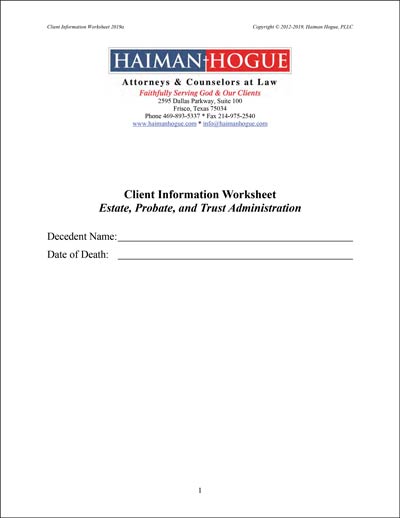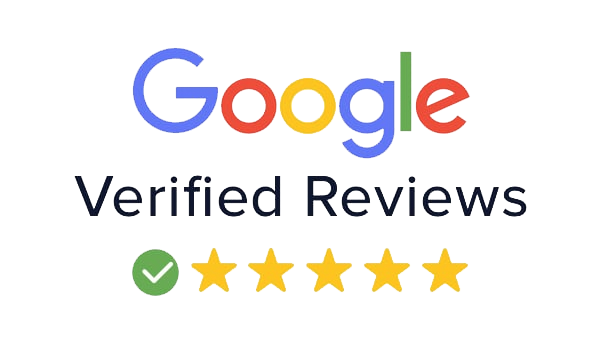Texas Trust Administration

Trust Attorneys Devoted to Clients in Frisco, Arlington and North Texas
After a trust maker dies, the person who has been appointed trustee has the job of administering the trust. This means that the trustee is responsible for managing the trust assets and distributing them according to the instructions contained in the trust agreement. Trust Administration is the legal process of settling the trust and then distributing the assets to the listed beneficiaries. It has many steps and is a complicated legal process that must be followed precisely. Since a trustee is considered a fiduciary, he/she has many duties as well as an ethical obligation to protect the trust assets and the interests of the beneficiaries. This is the highest legal duty of one party to another. Being a fiduciary requires being bound ethically to act in the other’s best interests. Because of this very high legal and ethical standard, it is NOT wise to try to do this on one’s own. A trustee should always seek the help of a professional trust administration attorney or law firm who has extensive experience in assisting trustees through this technical legal process.
Trust administration includes settling any debts, paying taxes, transferring property titles and any other administrative tasks that must be handled to close out or settle the estate of the decedent. The basic duties of a Trustee involve the collection, management, investment, and distribution of trust assets. It is also important to keep detailed records as well as prepare an accounting, an inventory, and possibly to obtain appraisals. Often times it is necessary to prepare a federal estate tax return (706), an income tax return (1041), and possibly a fiduciary tax return. Trust administration must be done in accordance to the documents prepared by those who created the trust.
The difficulty of trust administration is somewhat dependent upon the type of trust and size of the trust estate. But no matter the size, there are still several steps that must be followed correctly and paperwork that must be filled out properly. Trust administration is unique to each trust. The role of the trustee will vary depending upon the wishes of the trust owner and what is required by the trust documents.
A very important key to this after-death administration begins with how assets are titled (ownership). The legal title to an asset controls how that asset will be distributed.
Generally speaking:
Trust Assets owned by a trust are disposed of in accordance with the terms of the trust and are not subject to probate (a potentially expensive and time-consuming process controlled by the courts, to clear title).
Joint Tenancy is nothing more than right of survivorship. When a joint tenant dies, the remaining joint tenant or joint tenants get the asset. This is true whether there is a will, trust, or other document stating otherwise. Joint tenancy assets are not subject to probate.
Life Insurance proceeds generally do not go through probate so long as there is a living beneficiary that is not the estate of the decedent. Life Insurance proceeds are distributed to the named beneficiary or beneficiaries. Again, this is true regardless of what a will, trust, or other documents state.
IRA, 401k or other income tax qualified plans generally have a named beneficiary, similar to life insurance. There are, however, potential significant income and estate tax issues associated with these types of accounts.
Assets owned in the name of the decedent include the decedent’s interest as a tenant-in-common. These assets are distributed by the terms of the decedent’s will. If there is no last will, they will be distributed the way State law provides. These assets, depending on their value and state law, are subject to probate.
Trust Administration Checklist
Having a checklist can make the trust administration process more efficient for the trustee. These steps include:
- Review Trust and other related documents
- Obtain the authority to act as trustee
- Identify all assets and debts
- Identify and notify all trust beneficiaries
- Determine any special requirements of beneficiaries
- Prepare an inventory of all assets and liabilities
- Obtain title to trust assets
- Manage trust assets (to include protecting and prudently investing trust assets)
- Locate and protect all legal documents
- Notify trust creditors and pay trust debts and possible liabilities
- Employ professionals as needed (CPA, Financial Advisor, other attorneys, etc.)
- Get a trust Tax ID number
- Draft all legal documents needed to administer the trust or transfer the assets
- Arrange for bond (if needed)
- Keep an accounting of what comes in and what goes out
- File required documents with government offices or the courts
- File trust tax return
- Pay trust taxes
- Distribute trust income and property to beneficiaries
“Administration” or “settlement” of a trust after a death is a sobering responsibility. It is of utmost importance that you seek appropriate professional assistance and the trustee should be represented by legal counsel. There are many legal, tax, accounting, and investment obligations/duties of a trustee, some of which impose personal liability on the trustee(s). The law firm of HAIMAN HOGUE, PLLC is experienced and committed to assist the trustee in every step of the process. We guide and assist the trustee through the maze of legal, accounting, tax and ethical issues required to administer and distribute the estate of a deceased person.
Please feel free to schedule a time to speak with one of our professionals at HAIMAN HOGUE, PLLC today:
Book a Call
Click on the Probate & Trust Info. Worksheet below to download…
Once you’re done filling out the paperwork above, please send it to the following email address:
info@haimanhogue.com




